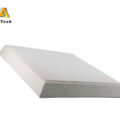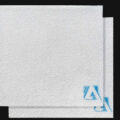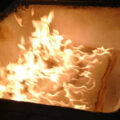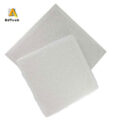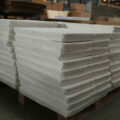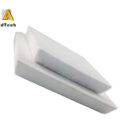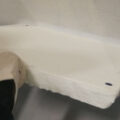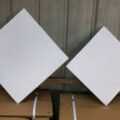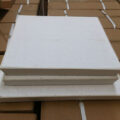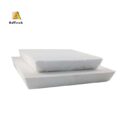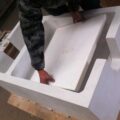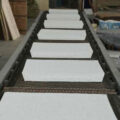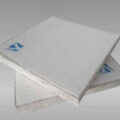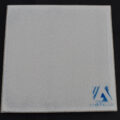CFF ceramic foam filter for aluminum casting is mainly intended for filtration of aluminum and alloys in foundries and casthouses. With the excellent attack and corrosion resistance of molten aluminum, the filter can effectively remove inclusions, reduce trapped gases and provide laminar flow, then the filtered metal is noticeably cleaner. Cleaner metal results in better quality castings, less scrap, and fewer embedding defects, which contributes to the bottom line.
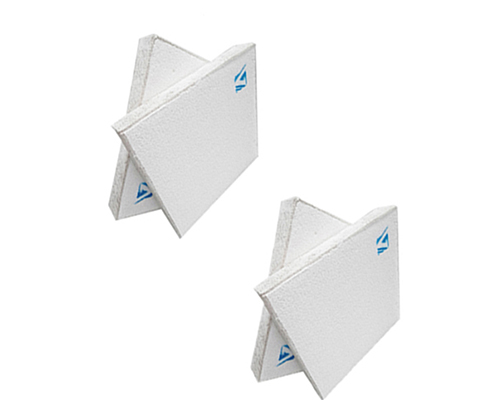
Ceramic foam filter, depending on the material: ceramic filters with alumina foam, silicon carbide ceramic foam filter, zirconia ceramic foam filter and magnesium oxide foam ceramic filter.
In the bronze casting process, the use of silicon carbide ceramic foam filter material is SiC.
Steel castings use ceramic zirconia foam filters. The heat resistance temperature of the filter zirconia is over about 1760 ° C, with very high strength and excellent high temperature impact.
Ceramic foam filter products effectively remove the solid-state mixed with molten metal, so that the aluminum alloy can be successfully forged, aluminum foil making, extrusion processing technology, products in perfect aluminum.
CFF ceramic foam filter for aluminum is normally applied by placing them in a filter box. It is important to preheat the filter and the filter box before use. During preheating, care should be taken to control both the rate of heating and the temperature distribution. This minimizes thermal shock and stress in the filters and the refractory of the filter box.
Before a filter can be used, it must be completely wetted with molten metal. This happens when starting the casting operation. The amount of metallostatic pressure (or priming head) required to wet the filters depends on the alloy, metal temperature, preheating uniformity, preheating temperature, incoming metal quality, pre-filter treatments, and filter cell size.
The scouring time of molten metal that the filter can withstand at high temperatures is limited, so the amount of molten metal filtered per unit area of the filter should be limited. According to the purity of the molten metal and the gradual material changes, filters of different sizes are selected. The thicker the filter, the better its strength. The filter’s deep filtration efficiency is also higher. But its use cost has also increased correspondingly, while the metal liquid passing rate has dropped.

